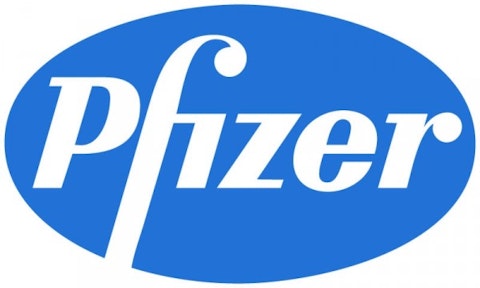Now more than ever, a comfortable retirement depends on secure, stable investments. Unfortunately, the right stocks for retirement won’t just fall into your lap. In this series, I look at 10 measures to show what makes a great retirement-oriented stock.
Merck & Co., Inc. (NYSE:MRK) isn’t the biggest pharmaceutical company in the Dow Jones Industrials by a long shot, with two major companies well ahead of it in terms of revenue. But despite seeing some of its name-brand drugs go off patent recently, Merck has kept up with the competition. Below, we’ll revisit how Merck does on our 10-point scale.

With decades to go before you need to tap your investments, you can take greater risks, weighing the chance of big losses against the potential for mind-blowing returns. But as retirement approaches, you no longer have the luxury of waiting out a downturn.
Sure, you still want good returns, but you also need to manage your risk and protect yourself against bear markets, which can maul your finances at the worst possible time. The right stocks combine both of these elements in a single investment.
When scrutinizing a stock, retirees should look for:
Size. Most retirees would rather not take a flyer on unproven businesses. Bigger companies may lack their smaller counterparts’ growth potential, but they do offer greater security.
Consistency. While many investors look for fast-growing companies, conservative investors want to see steady, consistent gains in revenue, free cash flow, and other key metrics. Slow growth won’t make headlines, but it will help prevent the kind of ugly surprises that suddenly torpedo a stock’s share price.
Stock stability. Conservative retirement investors prefer investments that move less dramatically than typical stocks, and they particularly want to avoid big losses. These investments will give up some gains during bull markets, but they won’t fall as far or as fast during bear markets. Beta measures volatility, but we also want a track record of solid performance as well.
Valuation. No one can afford to pay too much for a stock, even if its prospects are good. Using normalized earnings multiples helps smooth out one-time effects, giving you a longer-term context.
Dividends. Most of all, retirees look for stocks that can provide income through dividends. Retirees want healthy payouts now and consistent dividend growth over time — as long as it doesn’t jeopardize the company’s financial health.
With those factors in mind, let’s take a closer look at Merck & Co., Inc. (NYSE:MRK).
| Factor | What We Want to See | Actual | Pass or Fail? |
|---|---|---|---|
| Size | Market cap > $10 billion | $136 billion | Pass |
| Consistency | Revenue growth > 0% in at least four of five past years | 3 years | Fail |
| Free-cash-flow growth > 0% in at least four of past five years | 2 years | Fail | |
| Stock stability | Beta < 0.9 | 0.58 | Pass |
| Worst loss in past five years no greater than 20% | (45.3%) | Fail | |
| Valuation | Normalized P/E < 18 | 21.12 | Fail |
| Dividends | Current yield > 2% | 3.9% | Pass |
| Five-year dividend growth > 10% | 2% | Fail | |
| Streak of dividend increases >= 10 years | 2 years | Fail | |
| Payout ratio < 75% | 82.9% | Fail | |
| Total score | 3 out of 10 |
Source: S&P Capital IQ. Total score = number of passes.
Since we looked at Merck last year, the company has seen its score drop by two points due to another drop in revenue and a rise in the payout ratio. The stock has done well, though, rising nearly 20% over the past year as it has effectively worked through its patent-expiration issues.
Merck has seen its trailing sales drop substantially since its Singulair asthma drug went off patent in 2011. Yet the company has looked to other potential blockbuster drugs to take Singulair’s place, including diabetes treatments Januvia and Janumet, which have shown early signs of great potential success.
But one measure Merck & Co., Inc. (NYSE:MRK) has said it doesn’t want to resort to is breaking up the company. AbbVie Inc (NYSE:ABBV) has emerged from former parent Abbott Laboratories (NYSE:ABT) as a big-pharma powerhouse relying largely on its blockbuster Humira, but Merck doesn’t want to separate its pharma unit from the rest of its businesses. At the same time, Merck also doesn’t seem interested in following the strategy that Pfizer Inc. (NYSE:PFE) used in launching an IPO of its Zoetis animal-health unit. Pfizer Inc. (NYSE:PFE) found that allowing Zoetis to trade as a separate stock gave interested investors desirable direct access to a unit that’s a relatively small piece of Pfizer Inc. (NYSE:PFE)’s overall operations, but Merck sees benefits to keeping itself whole, rather than having the distraction of separately traded bits and pieces of its business.
Just yesterday, Merck got some great news as an advisory board allowed a clinical trial of its Vytorin cholesterol drug to go forward. Earlier safety concerns had some investors worried about the drug’s future, but the panel cited no safety issues in continuing the trial. Still, with the trial expected to run through September 2014, investors have a long time to wait before finding out whether Vytorin will see favorable results that could boost its marketability in the future.
For retirees and other conservative investors, Merck doesn’t have the history of consistent dividend increases that many of its peers offer. But with a nearly 4% yield, Merck & Co., Inc. (NYSE:MRK) would be worth a closer look if it could get its earnings up enough to remove any concerns about cash-flow availability in the future.
Keep searching
Finding exactly the right stock to retire with is a tough task, but it’s not impossible. Searching for the best candidates will help improve your investing skills and teach you how to separate the right stocks from the risky ones.
The article Will Merck Help You Retire Rich? originally appeared on Fool.com and is written by Dan Caplinger.
Fool contributor Dan Caplinger has no position in any stocks mentioned. The Motley Fool has no position in any of the stocks mentioned.
Copyright © 1995 – 2013 The Motley Fool, LLC. All rights reserved. The Motley Fool has a disclosure policy.





